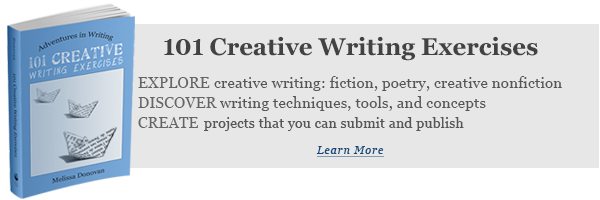Today’s fiction writing exercises are designed to help fiction writers gain a better understanding of their characters, including antagonists, by learning how to relate to contradictory or opposing viewpoints.
Remember, an antagonist is not necessarily a villain. An antagonist is anyone whose purpose is at odds with the protagonist’s goals.
The most effective characters are unique and complex, not cardboard cutouts of ourselves. That means we have to get into the heads of people who are strikingly different from us.
These fiction writing exercises will help you do just that. The idea is to try and view the world from a perspective that is completely different from your own.
Fiction Writing Exercises
Fiction writing exercises are a great way to work your writing muscles, especially when you’re feeling uninspired. Today’s exercises are for aspiring novelists and folks who enjoy penning short stories.
Characters are the heart and soul of any story, and to make them real and vivid, you have to be able to get inside their heads. And that’s a challenge — especially when dealing with antagonists and characters whom you have little in common with.
By stepping into a villain’s shoes or writing from a viewpoint that contradicts our own, we can learn to generate characters that are more realistic. For these writing exercises, you will select a person, position, or belief with which you are at odds. Do you have a neighbor who argues that she should not pay her share for the fencing on your shared property line? Are you for or against the death penalty? What’s it like to be a villain who believes he is the hero of his own story?
Here are some ideas to get you started:
1. People
Think of a person who constantly makes you grit your teeth. It could be someone close to you, perhaps a co-worker. Or it could be someone in the media — a politician, celebrity, or sports star. It could even be a character from a book or movie. It needs to be someone with whom you feel inner conflict, possibly someone who makes you uncomfortable.
When you sit down to write, you will write as if you are this individual. Write an essay, in first person, from this individual’s perspective, and make a concentrated effort to sympathize with this person as you address the things that bother you about this person’s words and actions.
2. Positions
Many of us have very strong positions on various issues. Some are serious and others aren’t very important in the grand scheme of things. Do you eat meat or are you a vegetarian? Are you a conservative or a liberal? Are you for or against a particular war? Look at some of the top news stories this week for more ideas. For a more lighthearted approach, look to lifestyle differences. Do people outside the mainstream intrigue or offend you? How important are table manners? Mac or PC?
Whatever your personal stance is, write as if you held the opposite position. Argue against your own arguments and discover what the other side is thinking. This can build empathy, heighten understanding, and lead to discovery and insight.
3. Beliefs
What religion or philosophy do you adhere to? Chances are, whatever it is you believe with regard to ethics and spirituality, there are a whole bunch of people out there who see things in quite a different light. Are you an atheist? Write as a Catholic. Do you believe in evolution or intelligent design? Write as an agnostic.
Use this exercise to better understand the similarities and differences between contrary ways of thinking and believing. Remember, you’re not mimicking the character, you’re stepping into his or her head. Try to relate to the way the character thinks and feels, and remember that each of us is shaped by our life experiences.
Tips for Tackling These Fiction Writing Exercises
In tackling these exercises, write at least 1000 words. The piece can take the form of a letter, an opinion editorial, or a personal essay written in the voice of a character who is significantly different from you. Don’t be afraid to get creative! Try writing a monologue or a poem (great approach if you’ve chosen to write about beliefs).
This is a useful writing exercise to revisit, especially if you get stuck with one of your fictional characters. Can’t figure out what your villain would do next? Write a short piece in first person from your villain’s perspective.
Good luck, and have fun with these and other fiction writing exercises!
Are you looking for more fiction writing exercises? Pick up a copy of 101 Creative Writing Exercises, available in paperback and e-book.

